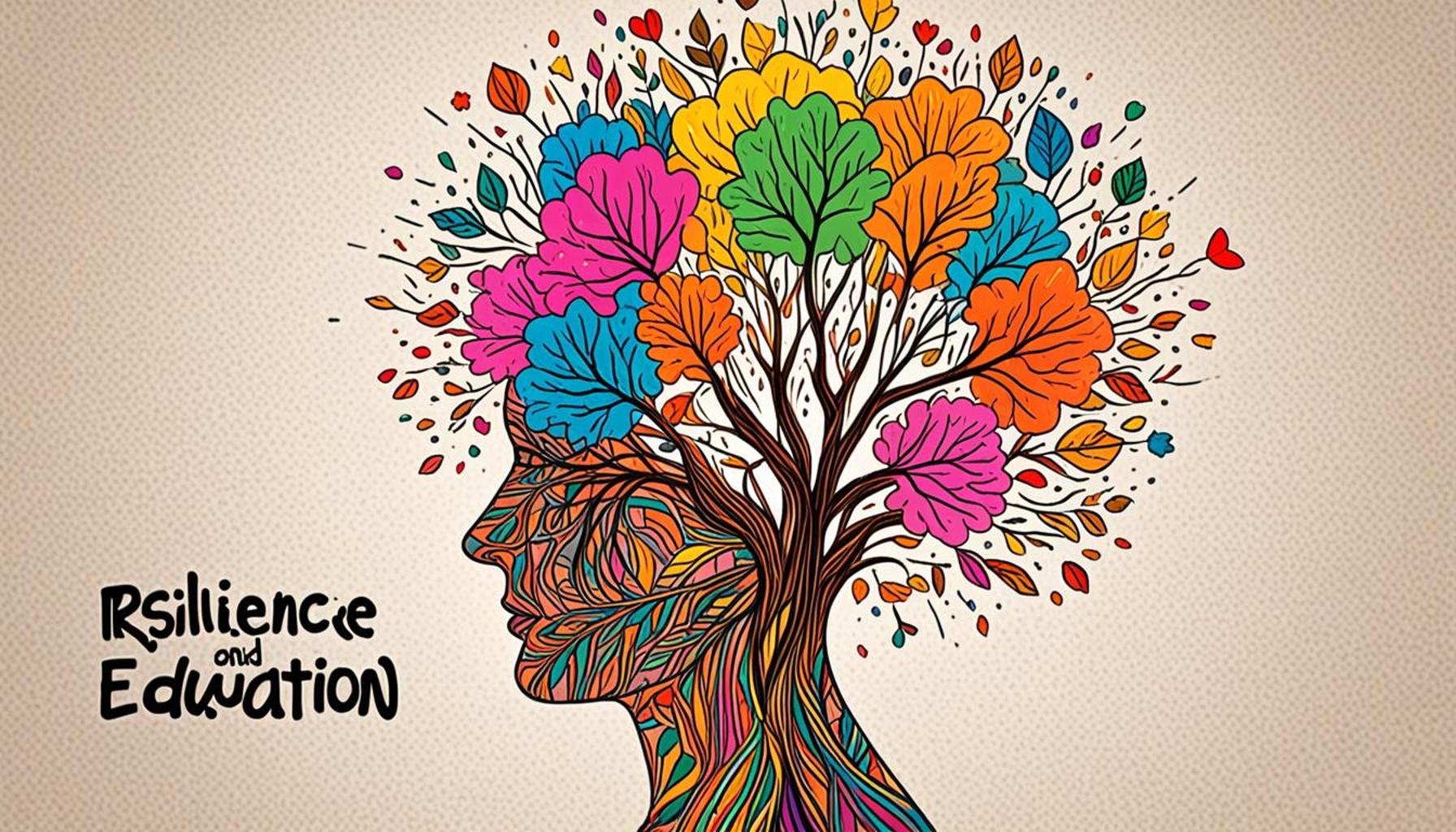The Importance of Resilience in Overcoming Challenges: Growth Mindset Techniques

Resilience as a Pillar of Strength in Overcoming Life’s Hurdles
Life is undeniably a series of ups and downs, filled with obstacles that test our endurance and will. In Nigeria, the landscape of challenges is particularly vast, spanning economic instability, social unrest, and personal tribulations. In such an environment, nurturing resilience becomes not just beneficial, but essential for individuals seeking to convert setbacks into stepping stones toward success.
One of the most effective ways to build this resilience is through the adoption of a growth mindset. Coined by psychologist Carol Dweck, this concept emphasizes the idea that our capabilities are not fixed and can be expanded through dedication and hard work. To develop a growth mindset, one must actively engage in several fundamental practices:
- Embracing challenges: Rather than shying away from difficulties, viewing them as opportunities to grow and learn can drastically shift one’s perspective. For example, a student who struggles in mathematics might seek out additional resources and tutoring rather than succumbing to discouragement.
- Learning from feedback: Constructive criticism should be welcomed as a vital part of the learning process. In a workplace setting, for instance, an employee can refine their skills by listening to performance evaluations and adjusting their approaches accordingly.
- Persistence: The journey to success is often littered with failures. Those who cultivate resilience commit to overcoming setbacks, understanding that persistence can yield significant rewards over time.
The implications of fostering resilience extend beyond mere personal growth; they ripple out to strengthen communities as well. In Nigeria, building a resilient population can lead to transformative benefits, including:
- Enhanced problem-solving skills: A resilient individual is better equipped to tackle the everyday intricacies of life, from navigating bureaucratic systems to orchestrating community projects that address local issues.
- Stronger social connections: Resilience fosters deeper ties among individuals who share similar experiences. Whether through support groups or community-driven initiatives, these connections can become lifelines during arduous times.
- Increased productivity: In the workplace, a resilient workforce often yields remarkable results. Employees who maintain a positive outlook and are prepared to adapt to change contribute more robustly to their teams, driving progress and innovation.
The path to resilience is rich with techniques that not only shift our mindsets but also enable us to thrive in the face of adversity. By delving into various growth mindset techniques, individuals can cultivate an empowering attitude that propels them forward, ensuring that life’s challenges do not hinder their potential but rather serve as a catalyst for achievement. In nurturing this resilience within oneself and one’s community, we pave the way for a brighter, more hopeful future.
ADDITIONAL INSIGHTS: Expand your understanding here
Strategies to Foster Resilience through a Growth Mindset
Understanding the integral role of resilience in overcoming challenges leads to the exploration of effective strategies that cultivate this critical trait. In Nigeria, where many face economic challenges and societal pressures, building a resilient mindset can significantly alter one’s approach to life. By utilizing proven growth mindset techniques, individuals not only enhance their own personal resilience but also contribute to the overall strength of their communities.
A key strategy in developing resilience is to actively engage in self-reflection. By assessing past experiences, individuals can identify moments where they overcame difficulty, recognized their capabilities, and became better equipped for the future. This self-awareness encourages a deeper understanding of personal strengths and areas for improvement. In an educational context, for instance, students can evaluate previous academic struggles and acknowledge the effort they put in to overcome them. This process transforms failure into a learning opportunity.
Another powerful technique is the practice of mindfulness and emotional regulation. Engaging in mindfulness helps individuals stay grounded, allowing them to manage stress effectively. In bustling urban centers like Lagos, where the pace of life can be overwhelming, incorporating mindfulness practices such as meditation, deep breathing, or yoga can equip individuals to handle challenges with greater composure. By learning to regulate emotions, people can respond thoughtfully to adversities instead of reacting impulsively.
Building a robust support system is also vital in nurturing resilience. Family, friends, and community connections play an important role in offering emotional support and encouragement. Whether through active participation in local groups or simply reaching out to loved ones during tough times, fostering these relationships helps individuals feel connected and empowered. Strong social ties can serve as a buffer against life’s difficulties, highlighting the value of community in resilience-building.
Additionally, the practice of goal-setting is crucial in the resilience toolkit. Setting achievable, incremental goals not only fosters a sense of direction but also provides measurable milestones to celebrate. For instance, a young entrepreneur in Nigeria might set short-term business objectives, allowing for adaptability and reflection on progress. As each goal is achieved, they build momentum and confidence, reinforcing their belief in their ability to overcome larger obstacles.
To further enhance resilience, individuals can adopt a perspective of gratitude. Focusing on positive aspects of life, even during challenging times, not only boosts morale but also encourages a more optimistic outlook. This can be particularly effective in community settings where individuals come together to share their experiences and express gratitude for support received amidst collective struggles. Acknowledge the small victories—be it a successful project completion or a supportive gesture from a neighbor—can shift focus from what is lacking to what is available.
In essence, resilience is a skill that can be cultivated through consistent practice and conscious effort. By integrating these growth mindset techniques into everyday life, individuals can navigate obstacles with resilience, harnessing challenges as opportunities for self-improvement and community upliftment. As we embrace these strategies, we prepare to stand stronger against life’s uncertainties, ensuring that we emerge from each struggle not just intact, but thriving.
The Importance of Resilience in Overcoming Challenges: Growth Mindset Techniques
Resilience plays a critical role in our ability to confront and overcome challenges. It enables not only individuals but also teams and organizations to bounce back from setbacks and keep moving forward. Developing a growth mindset—the belief that abilities and intelligence can be developed through dedication and hard work—supports this resilience. This section will delve into practical growth mindset techniques that can enhance resilience in the face of adversity.
One fundamental technique is embracing challenges as opportunities for growth. Instead of avoiding difficult situations, individuals should confront them head-on. This mindset alteration shifts the perception of obstacles from hindrances to possibilities for learning. For example, when faced with a failure, reflecting on the experience can reveal valuable insights that inform future actions. This adaptability fosters Lifelong Learning, an integral component of a resilient character.
Another essential strategy involves cultivating a positive self-talk habit. The words we choose to use with ourselves can significantly impact our emotional state and reactions to challenges. Negative self-talk can undermine confidence, while positive affirmations can boost motivation and resilience. By consistently practicing encouraging inner dialogue, individuals can strengthen their mental fortitude, allowing them to navigate challenges more effectively.
Additionally, establishing a supportive network is crucial. Surrounding oneself with positive influences enhances emotional resilience. These social connections serve as a buffer against stress and can provide encouragement during tough times. Sharing challenges with others fosters a sense of solidarity, reinforcing one’s ability to cope. This approach aligns with the concept of emotional intelligence, which emphasizes the importance of empathy and understanding in building strong relationships.
Lastly, maintaining a healthy balance between personal and professional commitments is vital for long-term resilience. Overextending oneself can lead to burnout, diminishing one’s capacity to tackle challenges. Time management techniques, such as prioritizing tasks and setting realistic goals, can be effective in achieving this balance. A well-rounded life enhances overall well-being and equips individuals with ample resources to confront adversity.
Adopting these growth mindset techniques can profoundly impact our resilience levels. By approaching challenges with a positive outlook, self-awareness, and a supportive community, individuals can foster an environment ripe for personal and professional growth, ultimately enabling them to overcome obstacles and thrive.
| Advantage | Description |
|---|---|
| Embracing Challenges | Seeing obstacles as opportunities for learning and growth. |
| Positive Self-Talk | Encouraging inner dialogue that boosts motivation and resilience. |
| Supportive Network | Building strong relationships that provide emotional resilience. |
| Life Balance | Prioritizing personal commitments to avoid burnout and maintain resilience. |
LEARN MORE: This related article may interest you
Emphasizing Continuous Learning and Adaptability
In the pursuit of fostering resilience, continuous learning emerges as a pivotal theme. In Nigeria, where economic conditions can shift rapidly and unexpected challenges are commonplace, being open to learning is crucial. Individuals must maintain curiosity and a thirst for knowledge, while cultivating an appetite for personal growth. This can be manifested through formal education, attending workshops, or utilizing online resources to gain new skills. By viewing every setback as an opportunity to learn, individuals empower themselves to adapt and pivot in various aspects of their lives.
A case in point is the rise of the tech industry in Nigeria, where young innovators, often self-taught through online courses, harness their growing skill sets to address local challenges. Startups emerge not just from well-funded incubators, but also from the resilience of individuals who faced rejection and economic hardships yet chose to persevere. By embracing failure as part of the learning process, these entrepreneurs demonstrate the strength that comes from a resilient, growth-oriented mindset.
The Role of Self-Compassion in Resilience
Another key technique in building resilience is practicing self-compassion. In a culture that often emphasizes achievement and success, it’s not uncommon for individuals to be harshly self-critical in the face of failure. Developing a practice of self-compassion allows individuals to treat themselves with kindness during difficult times rather than succumbing to feelings of hopelessness or inadequacy. This approach encourages individuals to recognize that everyone faces challenges and that it’s essential to respect their own journeys.
For instance, a student struggling in school can benefit from self-compassion by acknowledging their efforts rather than dwelling on grades. This mindset not only lessens stress and anxiety but also fosters the resilience needed to continue striving for improvement. When individuals replace self-criticism with self-encouragement, they pave the way for healthier coping mechanisms during challenging times.
Building a Resilient Workforce through Collaboration
In a professional context, resilience can be further cultivated through collaboration. In informal workspaces, especially common in creative and tech industries across Nigeria, teams that support each other strengthen individual resilience. Incorporating team-building exercises and open communication channels helps create an environment where employees share their challenges openly, create solutions collaboratively, and celebrate collective successes.
Moreover, organizations can implement mentorship programs where experienced professionals guide newbies through navigating obstacles in their career paths. By fostering a culture of support, companies not only enhance resilience among their employees but also drive overall productivity and innovation. A resilient workforce is better equipped to tackle challenges, innovate, and contribute positively to the organization’s success.
The Transformative Power of Positive Self-Talk
Finally, positive self-talk serves as a vital mechanism in nurturing a resilient mindset. The way individuals converse with themselves significantly influences their outlook on challenges. By replacing negative thoughts with affirmations, individuals can reshape their consciousness to focus on opportunities rather than setbacks. For instance, a job seeker might counter thoughts of inadequacy after a rejection with affirmations of their skills and past accomplishments, fueling their motivation to apply again.
This technique has gained traction among mental health professionals, who advocate for self-affirmation as a means to combat anxiety and enhance resilience. By fostering a supportive internal dialogue, individuals solidify their belief in their ability to overcome whatever obstacles they may encounter.
As these strategies illustrate, developing a resilient mindset is not merely about enduring challenges; it is about growing through them. Engaging in continuous learning, embracing self-compassion, collaborating with others, and practicing positive self-talk can create a powerful framework for resilience. In Nigeria and beyond, these growth mindset techniques resonate as transformative tools for both individual and community advancement.
ADDITIONAL INSIGHTS: Expand your understanding here
Conclusion: Embracing Resilience as a Catalyst for Growth
As we navigate the complexities of life, particularly in a dynamic landscape like Nigeria, the significance of resilience in overcoming challenges cannot be understated. By integrating growth mindset techniques into our daily lives, we equip ourselves to face adversity with strength and determination. The importance of embracing continuous learning, practicing self-compassion, fostering collaboration, and engaging in positive self-talk emerges clearly from the patterns we observe. These strategies not only aid in overcoming immediate challenges but also lay the groundwork for long-term personal and professional development.
Moreover, in a society marked by rapid changes and unpredictable obstacles, resilience becomes the backbone that propels individuals and communities forward. Harnessing these techniques cultivates a culture where setbacks are viewed as stepping stones, allowing for innovation and adaptability to flourish. From aspiring entrepreneurs to students grappling with academic pressures, the power of resilience unveils new possibilities and pathways.
As we continue to evolve in response to the myriad challenges we face, let us prioritize nurturing a resilient mindset, both individually and collectively. This not only benefits us in our respective journeys but also strengthens the fabric of our communities. In this way, resilience not only serves as a personal strength but also as a societal imperative, fostering growth, empowerment, and a transformative spirit across Nigeria and beyond.



